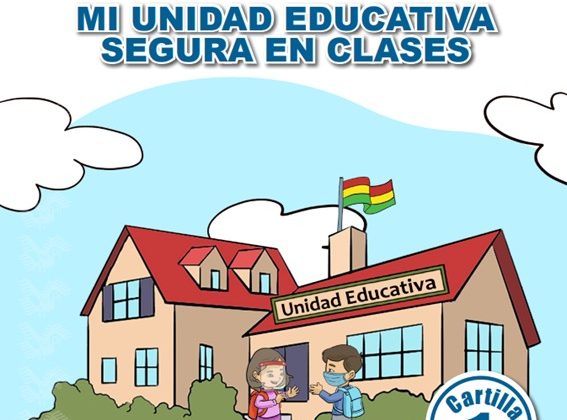
Strategies and Actions for Disaster Risk Management in Schools
Due to adverse climatic phenomena such as droughts, floods, landslides, and forest fires, Bolivia faces various emergencies that affect the continuity of education for girls, boys, and adolescents.
For Save the Children, reducing disaster risk and ensuring education to Bolivian children in emergency situations is fundamental. We are currently co-leader of the Global Education Cluster in Emergencies and, together with UNICEF, under the Safe Schools approach, we develop actions for disaster risk management and climate change adaptation in schools.
All actions are coordinated with the Ministry of Education within the framework of the Technical Working Group on Education in Emergencies, and together we developed materials to ensure that the educational community is organized and prepared for emergencies.
The main materials developed are:
- Updated National Contingency Plan for the Education Sector: the coverage of this plan was expanded to include responses to forest fires, droughts, frosts, hailstorms and earthquakes, thereby strengthening the resilience of the education system.
- Edition of the guide that facilitates coordination between autonomous territorial entities and the education sector, optimizing the joint response to emergency situations.
- Production of videos that clearly explain the procedural guide for coordinating actions between autonomous territorial entities and the education sector in case of disaster and during an emergency response.
- Development of an explanatory video on how to enrollchildren and adolescents from other countries in schools of Bolivia, facilitating their integration into our education system.
- Update of the mobile application «Mobilízate Informad@» incorporating a module to guide parents or guardians, in situations of human mobility, on how to access their children to the Bolivian education system.
These materials, having been developed with the Ministry of Education, are being transferred and implemented nationwide: for example, the Autonomous Departmental Government of Cochabamba is implementing these tools through the Risk and Climate Change Management Unit.
Some of the good practices carried out with schools of Cochabamba include:
- Training of First Aid Brigades.
- Afforestation and establishment of school gardens within schools.
- Dengue prevention by raising awareness on how to prevent the spread of dengue mosquitoes and adapting classrooms with mesh screens with the participation of parents.
- Clean air, health, and environmental education project for the prevention of forest fires, which includes the planting of fruit trees and garden plants to promote environmental conservation.
With these materials and activities, Save the Children aims to ensure that schools are prepared for various adverse events and thus guarantee the right to education for girls, boys, and adolescents.

 Bolivia
Bolivia